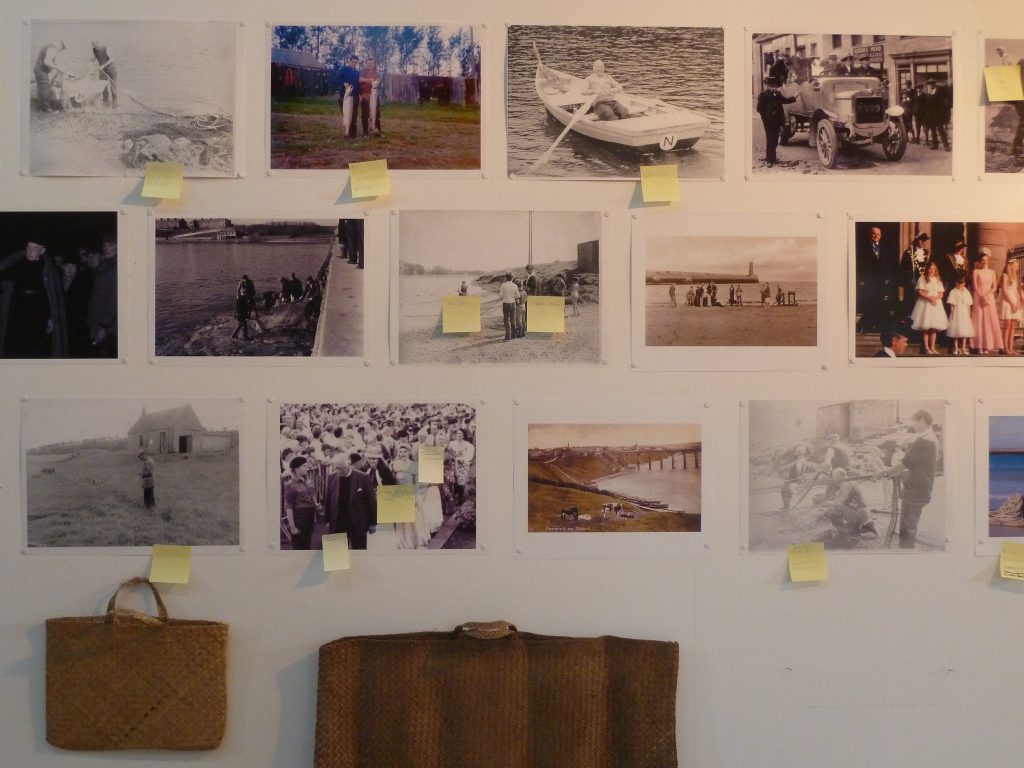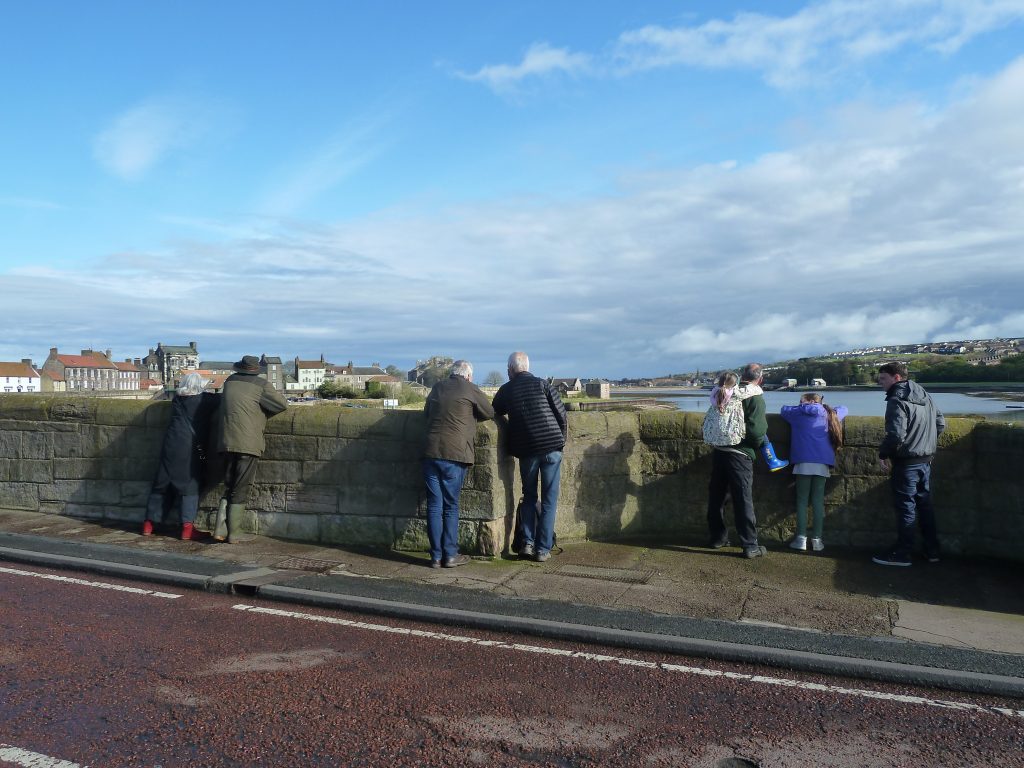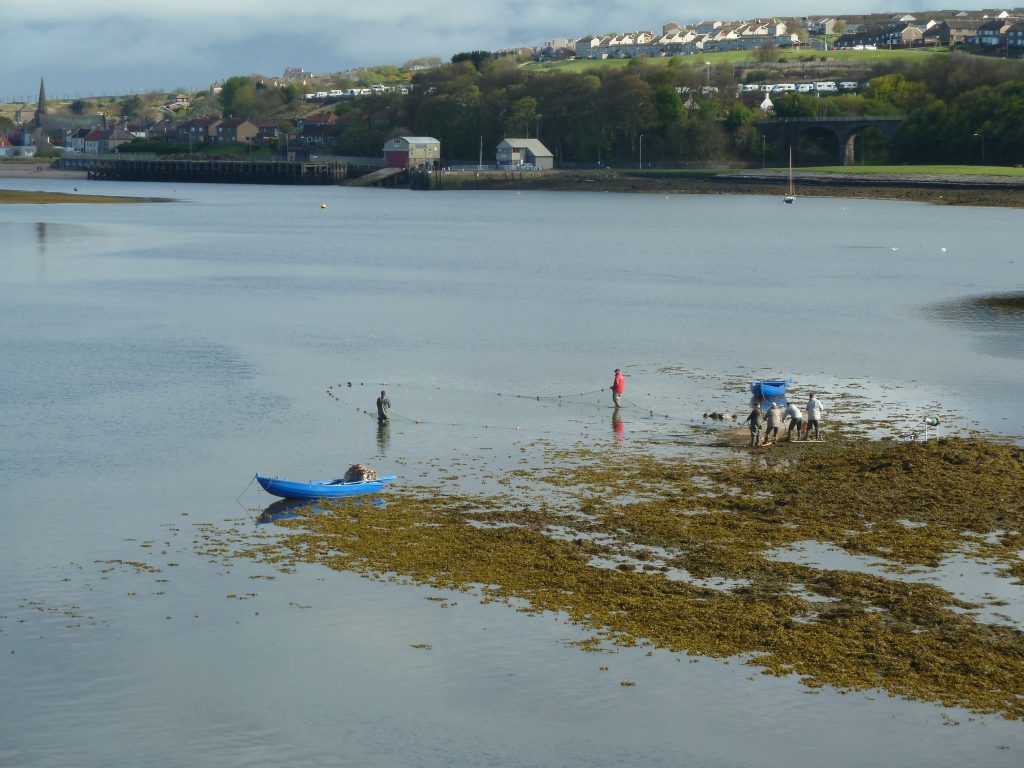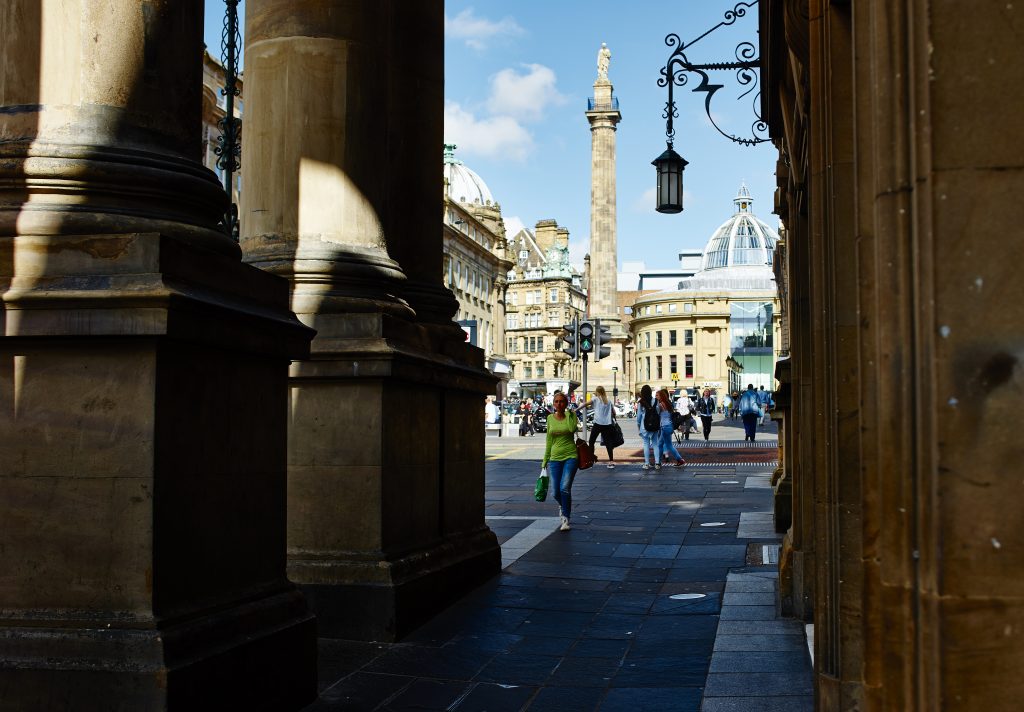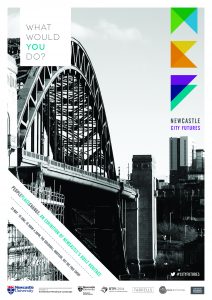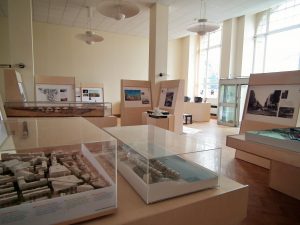Two years ago Newcastle University Institute of Social Renewal sponsored a series of citizen-led story-telling events in the North East border town of Berwick upon Tweed. Our ‘listening project’ coincided with the town celebrating 900 years of history: it focussed on the traditional livelihood of ‘net and coble’ salmon fishing and how it contributed to a local sense of identity and belonging.
Local citizens, whose voices are rarely heard in major decision-making, were asked to share their personal impressions of this once thriving local industry. At the time it was feared that the last commercial fishing station would remain closed forever. As well as collecting personal impressions we wanted to stimulate a wider-ranging conversation about the potential to revive and sustain net fishing activities on the Tweed. Since the industry contracted rapidly in the 1980s, Berwick has lost net fishing jobs and income and the further risk is of losing ‘intangible heritage’ associated with net fishing traditions. We heard different views about what is valued, such as a living river, and how to keep knowledge alive that is embodied and rarely written down.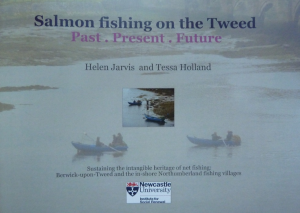
From the stories we gathered for a final souvenir publication we found a clear ambition in Berwick to preserve an active, fully functioning fishery, rather than to celebrate deep rooted fishing heritage only as a chapter of Berwick’s past. This ambition echoes a growing trend for the English regions and small towns in particular that seek to retain artisan products and keep craft skills alive. This is evident in Slow Food and Cittaslow quality of life initiatives that help to define Berwick through popular food, drink, civic arts and heritage festivals.
Engagement, impact and renewal
Mid-way through listening to local concerns we published a blog in July 2015. At the end we pondered the impact that public dialogue might have in reviving the last remaining fishing stations; one at Paxton (catching and releasing fish for scientific purposes only) and one at Gardo (perched alongside the iconic 17th century Old Bridge at the very heart of Berwick). Back then it was difficult to imagine what a positive impact of social renewal might bring about. So it is hugely satisfying today to be standing on the Old Bridge with a crowd of visitors watching the net fishing at Gardo (these images taken 21st April 2017). Visitors have always gathered in large numbers to watch the fishing by net from a wooden coble – and now they can do so again.
Commercial fishing continues on a modest scale due to the inspirational commitment of Michael Hindhaugh, who set up the River Tweed Wild Salmon Company as a social enterprise in 2015, and groups of volunteers, such as the Berwick Town Team, eager to ensure the continuation of the traditional net and coble fishing method. The River Tweed Wild Salmon Company makes available the only legal way to purchase Tweed wild salmon as it is illegal to sell rod-caught salmon. The Company also caters for corporate team-building and groups of family and friends to participate in the authentic net fishing experience. Michael is the first to acknowledge that the Company can never operate as a conventional business, based on salmon sales alone:
“I’d not make it on The Apprentice! We just about broke even last year. As a social enterprise it’s not about making a living but keeping the practice alive here on the Tweed. My team are all retired fishermen, plus a couple of students taking on seasonal work. The B&B businesses really appreciate us fishing, even on a short season, because it’s a huge spectacle that never fails to draw a crowd”.
This resonates with arguments for agricultural subsidies in some rural economies which are not competitive when priced purely on a single product. A wider view of rural services would take account of the contribution artisan fishing makes to a locally distinct landscape and quality of life.
Many people who came along to our story-telling events in 2015 brought with them family photographs, news cuttings, artefacts and documents to show their personal connections to the netting industry. These citizen-led archives continue to grow as part of a continuing conversation on the significance of net fishing and the river to Berwick. This is evident in a recent Berwick Town Team exhibition which attracted close to one thousand visitors over a fortnight. Visitors were invited to add comments and names to the many photographs assembled, to increase the richness of the local salmon fishing story.
Slow qualities of life
Watching the net fishing up close it’s easy to be drawn into its rhythmic qualities: the coble rowed out, paying out the net in a semi-circular ‘shot’, outlined by floats, encircling any passing fish in the decreasing draw of the net, the coble rowed back to land and the net winched in. These ‘slow’ qualities of life have widespread appeal, as evident in the success of ‘slow TV’ and ‘slow radio’ broadcasting leisurely canal journeys, glassblowing and sounds of the summer. Why not net fishing? Nothing much happens but the tempo is therapeutic, focusing in on what appears to matter, not, ironically, whether a fish is caught rather something altogether more pastoral. It is about giving rural activities the time that they take, valuing particular skills rather than only caring about the final product. These observations and the impact our project has had links to ongoing research advancing new paradigms of sustainable de-growth.
Dr Helen Jarvis is a reader in social geography from Newcastle University School of Geography, Politics and Sociology. Working jointly with Tessa Holland, doctoral candidate, the project “Salmon Fishing on the Tweed” was awarded a Social Renewal grant in Spring 2015.

